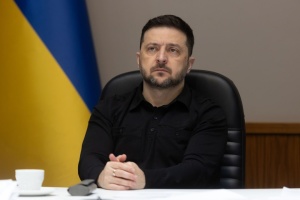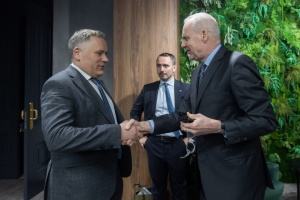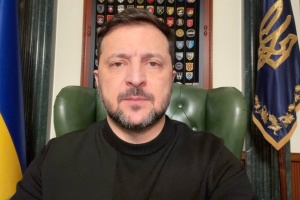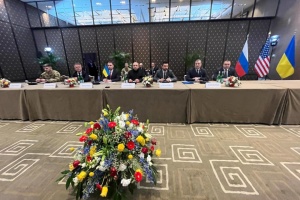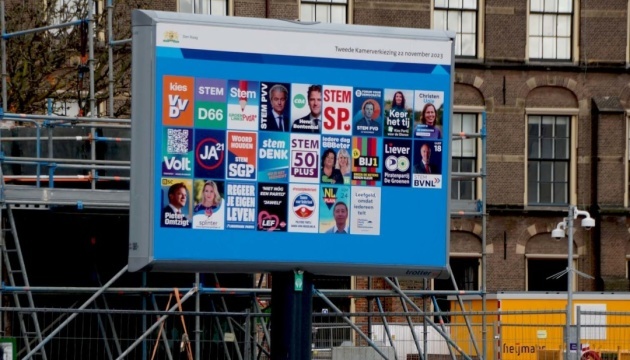
Early parliamentary elections in Netherlands: how are they going and what should Ukraine expect?
Today, November 22, early parliamentary elections have started in the Netherlands following the resignation of the Rutte government. The Dutch government, headed by Prime Minister Mark Rutte, collapsed after failing to reach an agreement on migration policy.
He was nicknamed Teflon Mark for his ability to find solutions and keep government crises in check.
The heavyweight politician has played and continues to play a major role for Ukraine. From the very beginning of Russia's full-scale invasion of Ukraine, the Netherlands has been actively supporting our country. It was the Netherlands that was the first country to promise to provide Ukraine with F-16 fighter jets. Last week, Rutte's government allocated 2 billion euros in aid to Ukraine for 2024.
However, the Netherlands is facing major changes, as the country will have a new leader for the first time in 13 years. The elections and the post-election coalition will be a challenge for the Netherlands. The lower house of parliament has 150 seats, so a coalition must control at least 76 seats. At least three parties will be needed to form a coalition after the elections, so it could be a long process.
So, who could become the new prime minister of the Netherlands? And what does this mean for Ukraine? Will the future cabinet continue Rutte's policies?
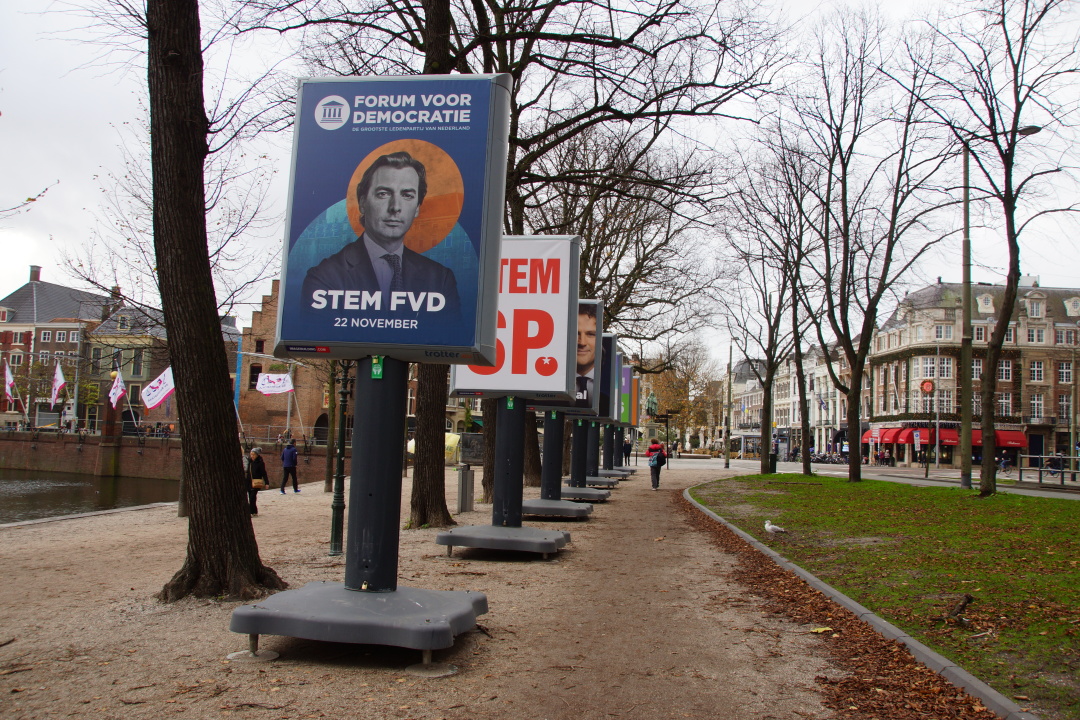
ELECTION DAY IN THE NETHERLANDS
On the main streets of major cities in the Netherlands, there are large billboards with the names of the parties, new and old, and well-known faces. In public transportation, supermarkets, and on the street, people discuss how their lives will change after the election.
In the Netherlands, voters are primarily concerned about what is happening in their country. Most of all, they are concerned about a serious housing crisis, migration, the healthcare system, education, and the climate crisis.
The StemWijzer guide helps the Dutch understand the programs and decide who to vote for in the elections.
You have to answer 30 questions. For example, whether the Netherlands needs to build more nuclear power plants. The user can indicate "agree," "disagree," or hesitate with the answer. At the end of the test, the result shows which parties the voter agrees with the most.
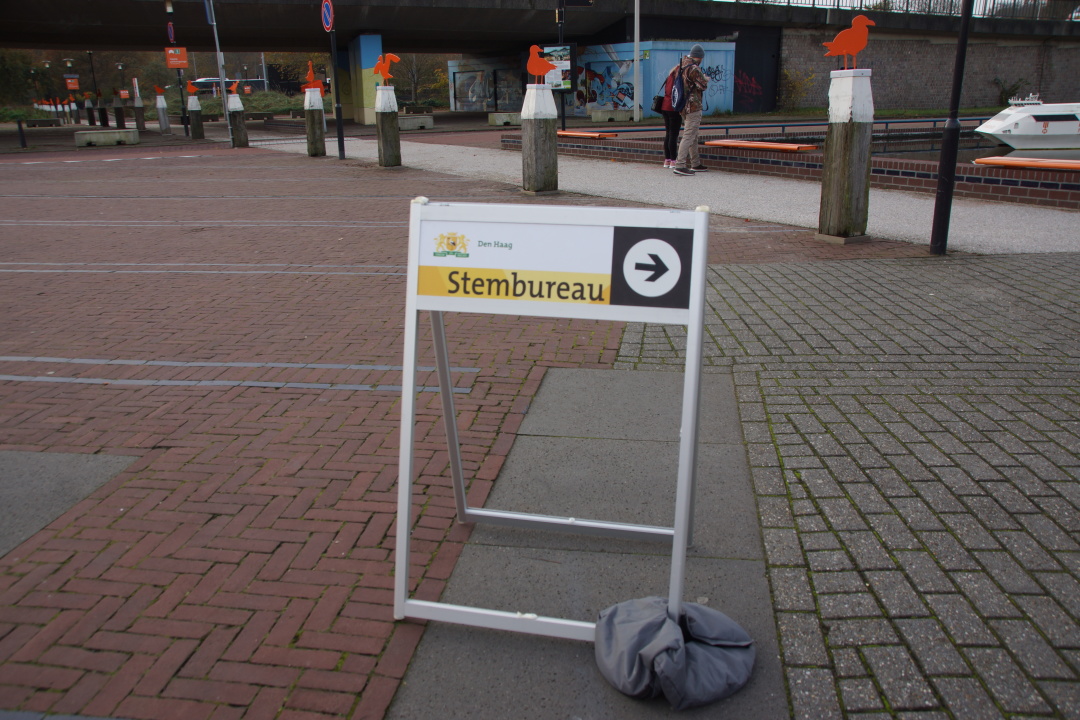
Unlike other European countries, elections in the Netherlands are usually held on Wednesdays. A total of 9823 polling stations were opened across the country. Interestingly, a number of municipalities have polling stations in rather special places. For example, in the Madurodam miniature park in The Hague, in the Anne Frank House in Amsterdam, you can also vote in Pathé cinemas. Polling stations opened at 7:30 am. You can vote until 21:00.
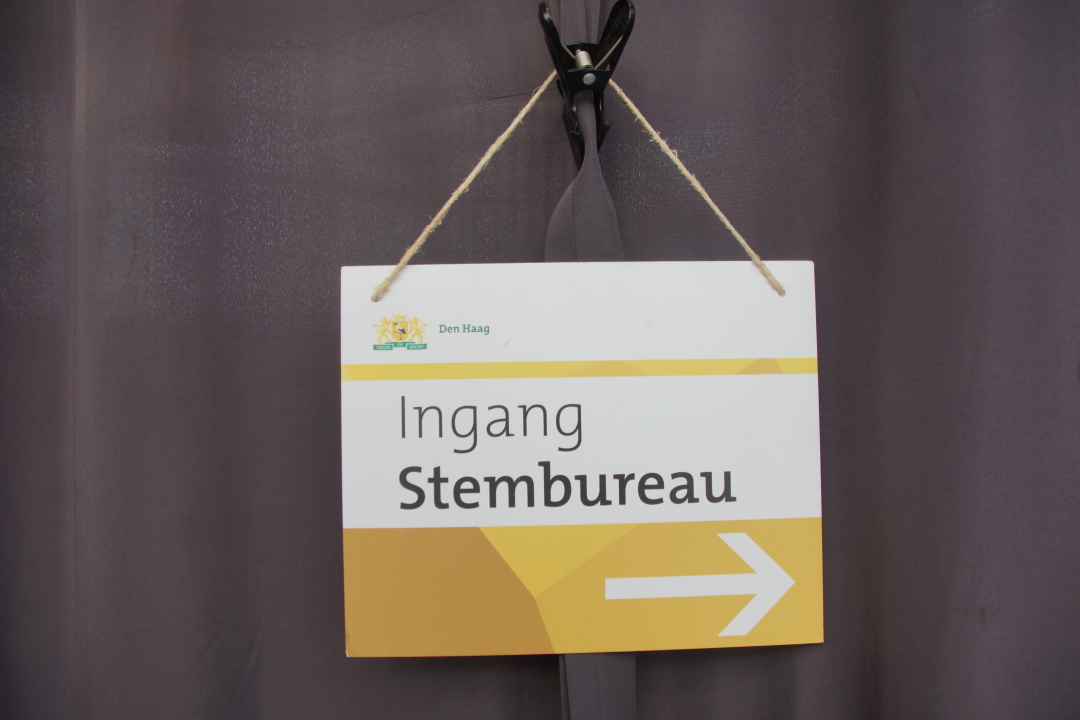
Citizens over 18 years of age are eligible to vote. Twenty-six parties were registered to run in the election.
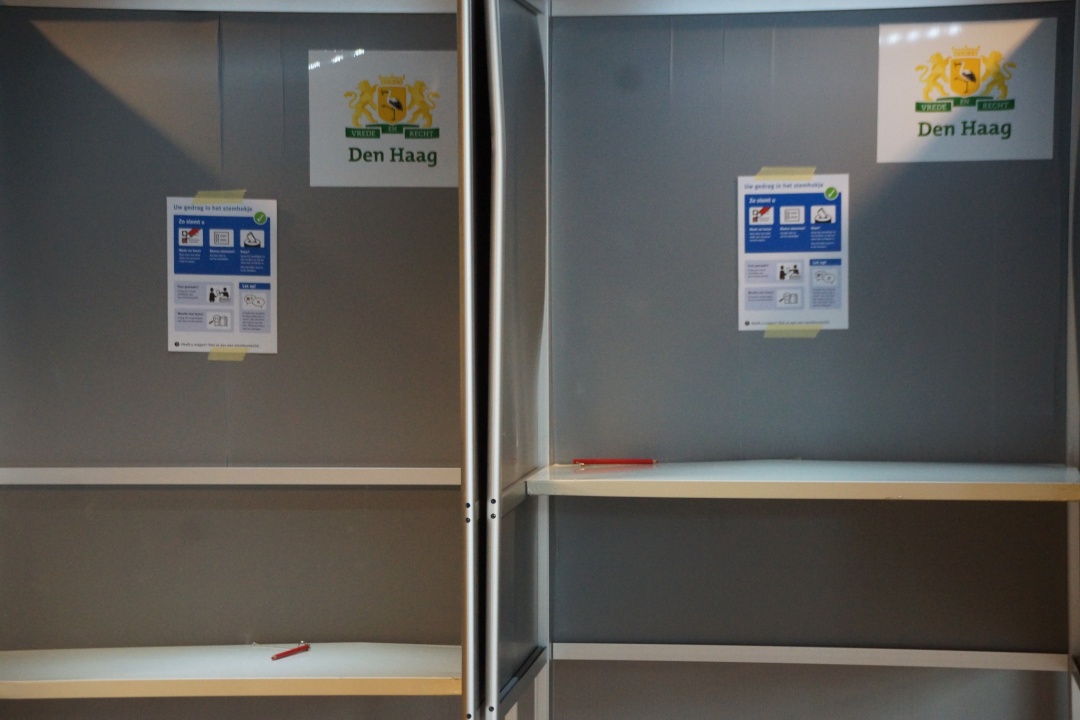
ELECTION RACE IN THE NETHERLANDS - WHO IS UKRAINE'S FRIEND?
As it was two years ago, the VVD (People's Party for Freedom and Democracy), formerly led by Rutte, initially looked like the largest party, according to polls. Now Dilan Yesilgoz-Zegerius has replaced Rutte as the head of this party. And if the People's Party for Freedom and Democracy wins, it is possible that she will become the first female prime minister of the Netherlands. After all, the leader of the largest party in the coalition usually becomes prime minister.
The PvdA (Labor Party) and the GroenLinks (Green Left) have joined forces and can also be called friends of Ukraine. They elected Frans Timmermans as their leader by an overwhelming majority. He spent the last almost 10 years in Brussels. Now his place has been taken by former Dutch Foreign Minister Wopke Hoekstra. He was nominated by the government for the position of European Commissioner after Timmermans, who had actually held the post, resigned to run in the national elections.
It is worth noting that in 2014, when Russia shot down the passenger plane MH17 in the skies over Donbas, Timmermans was the foreign minister in Rutte's government. So he is well aware of what the "Russian world" is. He is well aware of all the challenges. And given his experience, he also has a chance to become a prime minister who, like Rutte, will actively support Ukraine.

However, given that things are changing rapidly, as they say, there may be options.
There was a debate on television between the largest Dutch political parties. The central issue was migration policy. Geert Wilders' right-wing PVV party, which is strongly opposed to migration and asylum, has a chance to become the largest party in the Netherlands.
Many left-wing parties are urging voters to vote strategically to avoid a right-wing government. So this is a very tense election for the Netherlands.
"In general, we have four leaders in the race to become the largest party in the Netherlands. Two of the parties are, let's say, skeptical about Ukraine. The first is called the Freedom Party (PVV), led by Geert Wilders. And this party promises its voters to stop supporting Ukraine-military, political, and economic. The second party is better inclined - it is a party called the NSC (New Social Contract). It was founded and is led by former Christian Democrat Pieter Omtzigt. This party supports Ukraine in the fight against Russian aggression, but does not have a transparent clear position when it comes to Ukraine's candidacy for EU membership. Others - VVD (People's Party for Freedom and Democracy) and PvdA (Labor Party) with GroenLinks (Green Left), which are leading the race - are completely pro-Ukrainian, ready to support militarily, politically and economically," said Dutch journalist and political analyst Hubert Smets.
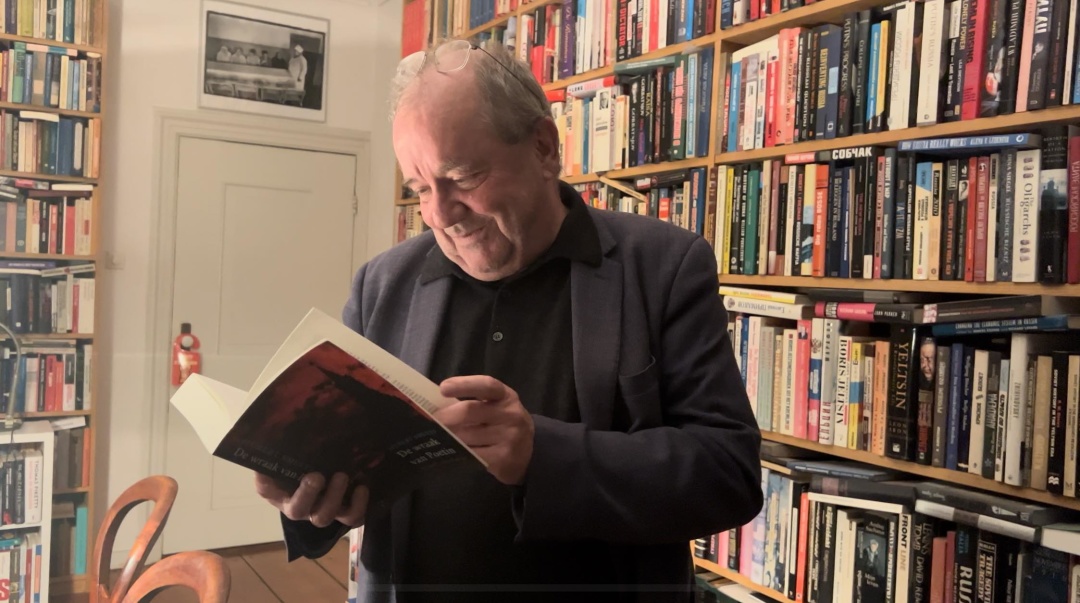
He also noted that these are the first elections in the Netherlands since World War II, when Europe is at war. "Before the campaign started, I thought, and I was very naive, that these elections would have a different focus: the war in Ukraine, the Russian threat, challenges for the European Union and NATO. This did not happen. The campaign was less European and more national. And I'm afraid I'm very pessimistic about the outcome of the election. Yes, we cannot predict who will win now. But the general trend of the campaign was inward, not outward. We only remember the Dutch and forget about our neighbors - the war in Ukraine and Russia. This makes me very sad," Smits says.

For her part, Yulia Soldatyuk-Westerveld, an expert at the Netherlands Institute of International Relations Clingendael, noted that after the elections, the process of coalition formation begins, and it is quite long, sometimes lasting from four months to six months. "Coalition formation takes a lot of time. This means that there will be no changes in the next six months, as the Cabinet of Ministers remains the same, and all the support packages that currently exist for Ukraine will be continued," she said in a comment to Ukrinform.
In her opinion, there are two options for the most likely coalition. "These are the VVD (People's Party for Freedom and Democracy), formerly led by Rutte and now by Dilan Yesilgoz-Zegerius, the PvdA (Labor Party) and GroenLinks (Green Left), led by leader Timmermans, and the NSC (New Social Contract), which is expected by Omtzigt. This option is very favorable for Ukraine. It means that the policy and support for Ukraine will not change. There is another option: the VVD, the NSC, and a third Freedom Party (PVV) led by Geert Wilders. His party is quite skeptical about supporting Ukraine," noted Yulia Soldatyuk-Westerveld,
According to her, the Freedom Party (PVV) led by Geert Wilders has a chance to join the coalition for the first time in a long time. Therefore, the statements of this political force have become less critical and more moderate in order to be able to start negotiations with the VVD (People's Party for Freedom and Democracy).
"Before the full-scale invasion, this party was positive about Russia. In 2018, several PVV MPs went to the Duma at the invitation of a politician. It is unknown how close these ties are now, as well as how the PVV will position itself towards Ukraine after the elections," she emphasized.
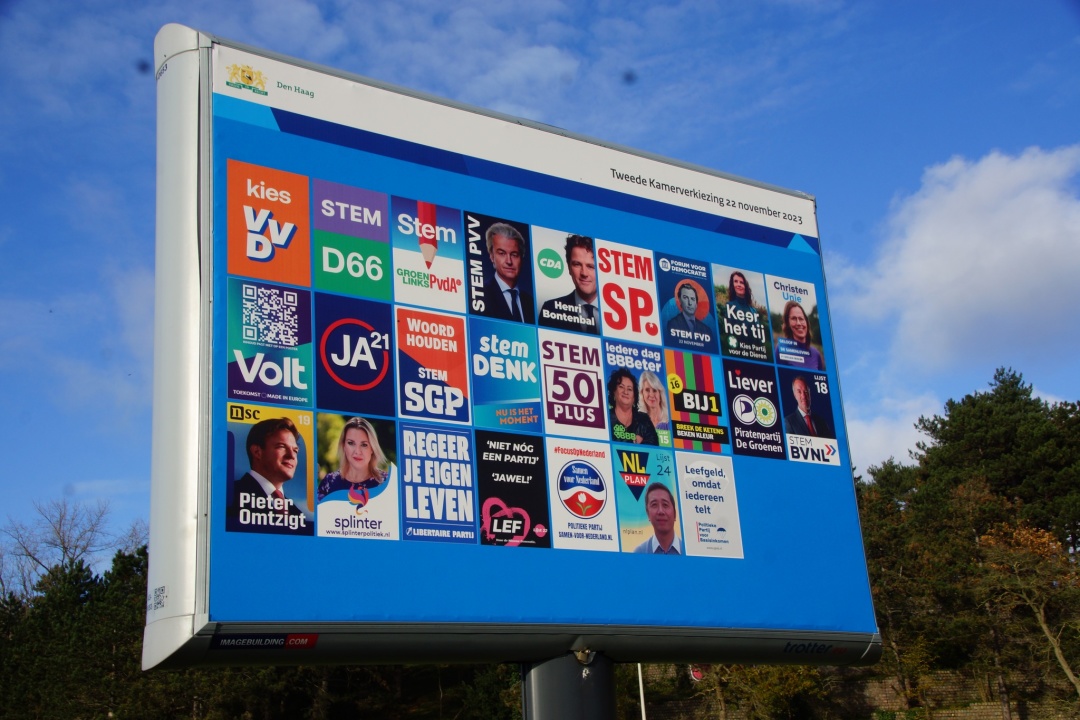
DUTCH POLITICAL SOLITAIRE - WILL IT WORK FOR UKRAINE?
According to a Peilingwijzer poll, three parties remain the leaders in the election race.
The VVD (People's Party for Freedom and Democracy), formerly led by Rutte, is now headed by Dilan Yesilgoz-Zegerius, with 26-30 seats. And this political force is a friend of Ukraine.
The same cannot be said about the far-right Freedom Party (PVV), led by Geert Wilders, which has 25-29 seats.
GroenLinks (Green Left) and PvdA (Labor Party), which elected Frans Timmermans as their leader and have 23-27 seats.

The newly formed NSC (New Social Contract) party, founded in August by MP Pieter Omtzigt, appears to be dropping out of the race for the largest number of seats in the parliament, with 19-23 seats currently projected. For almost a week, the list of top 3 parties also included the NSC, with the PVV clearly lagging behind. Over the past few days, Geert Wilders' party has risen, while Pieter Omtzigt's party has fallen in the rankings.
The reason for these dramatic changes could be the debates. Wilders seems to be doing very well in the debates on television. According to I&O Research, almost 40 percent of viewers found him to be the most convincing.
However, it is worth remembering that these are not yet the election results. And there is always some surprise, a party that gets an additional 5 or more seats compared to the poll. In 2017, the VVD won many more seats than predicted in the final polls, and in 2021, so did the D66 party.
Voters can change the situation. So it's worth being patient. The first election results (exit polls) should be known around 19:00 - 20:00 pm, and the final results will be announced on the next election day.
Irina Drabok, The Hague

